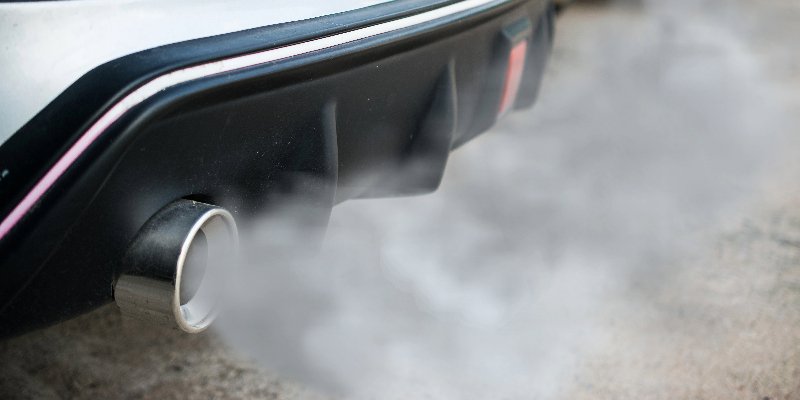UCC highlights the benefits of switching the engine off 07 Sep 2023

- If drivers avoided engine idling for just 3 minutes every day of the year, Carbon Dioxide emissions would be reduced by 1.4 million tonnes annually – the equivalent of taking 320,000 cars off the road.
- Studies have found children in particular are most at risk of engine idling.
- UCC becomes first university in Ireland to implement a “no engine idling” policyThursaday, 7 September is World Clean Air Day and as schools return and our roads get busier, experts at University College Cork (UCC) are highlighting the benefits of switching your engine off.
Engine idling means leaving a vehicle's engine running while it is stationary. Besides brief stops in traffic, there are many instances – such as waiting for children outside schools, buses waiting for passengers, and vehicles making deliveries – when idling is not necessary and should be avoided. Studies have found children in particular are most at risk of engine idling.
Engine idling is a widespread and unregulated practice in Ireland. While idling laws are common across Europe, Ireland has yet to introduce legislation that bans engine idling. Most modern cars have an automated engine-shut down feature that saves fuel and money, and reduces emission of harmful air pollutants, yet engine idling persists.
University College Cork (UCC) has become the first university in Ireland to implement “a no engine idling policy” and its researchers highlight how the public can save money, protect the environment and improve air quality by shutting their car engines off.
Dr Dean Venables of the Centre for Research into Atmospheric Chemistry/ERI at UCC said: “The perception that engine idling is harmless is false. Engine idling causes multiple types of harm. In Ireland, air pollution accounts for about ten times more deaths than road traffic fatalities. Idling releases toxic substances like nitrogen dioxide, black carbon and particulate matter into the air that harms those outside and inside vehicles. And idling emits carbon dioxide and black carbon, which are both major contributors to climate change.”
UCC now becomes the first university in Ireland to roll out a no engine idle policy across its campuses. Staff, students and visitors will be encouraged to switch the engine off when stopped. UCC joins other universities across the world who have rolled out no engine idling policies and awareness campaigns.
Idling contributes to significant climate-warming and air pollutant emissions including:
- Carbon dioxide (CO2), the principal cause of climate change.
- Fine Particulate Matter (PM2.5), the most harmful air pollutant that is associated with increases in mortality and morbidity, adverse birth outcomes and childhood respiratory disease.
- Black carbon (BC) or soot, which has large direct and indirect impacts on the climate and human health.
- Nitrogen oxide (NO) and nitrogen dioxide (NO2) which are linked to asthma and other lung diseases.
Stephan Koch, UCC Commuter Plan Manager, said: “Petrol and diesel cars and trucks produce dangerous pollutants while idling. Eliminating idling is one easy action that people can take to reduce their contribution to climate change globally and air pollution locally. By adopting a No Idling policy on campus, we aim to make campus a healthier place, raise awareness of the environmental harms of idling and support positive momentum to develop no idling legislation in Ireland as part of climate targets.”
Ways to avoid unnecessary idling
- Turn off your engine if you are waiting for longer than 10 seconds (except in traffic). Idling for just 10 seconds wastes more fuel than restarting the engine.
- Idling is harder on the engine than restarting.
- Warm up your engine by driving your car, not by idling. The best way to warm the engine is by easing into your drive and avoiding excessive engine revving.
- Enable the Auto-Stop/Start Technology feature in modern vehicles to reduce engine idling when stopped in traffic.
- Two minutes of idling uses the same amount of fuel as 1.6km of driving. Engine idling wastes fuel and money.
- If drivers avoided idling for just 3 minutes every day of the year, CO2 emissions would be reduced by 1.4 million tonnes annually – the equivalent of taking 320,000 cars off the road.
- Idling leaves fuel residues that damage engine components and add to maintenance costs, whereas frequent restarting causes only about €10 worth of wear-and-tear per year.